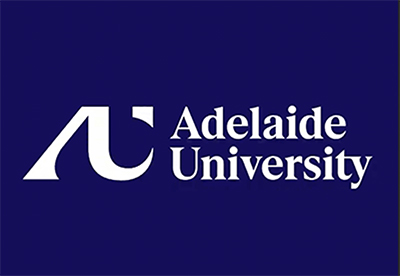Achievements and Announcements
ACHIEVEMENTS
- Cancer, birth defects and AI under the health microscope in 2025
- UniSA staff and alumni among distinguished Australia Day honourees
- UniSA students shine in exclusive national program fostering Australia-China relations
ANNOUNCEMENTS
APPOINTMENTS
- Forestry Centre of Excellence welcomes first director
- UniSA welcomes new leader for its Mount Gambier campus
ACHIEVEMENTS
Cancer, birth defects and AI under the health microscope in 2025
Triple-negative breast cancer patients stand to benefit from a $1.1 million UniSA research project to start in 2025, exploring new strategies to slow the spread of an aggressive class of proteins resistant to treatment.
The research, led by Associate Professor Philip Gregory, is one of five successful NHMRC Ideas Grants awarded to UniSA researchers for 2025, totalling $5 million in value.
The National Health and Medical Research Council grants, announced late last year, support innovative health research projects addressing a specific question.
Details of the UniSA NHRMC Ideas Grant projects are:

Associate Professor Philip Gregory, Centre for Cancer Biology ($1,166,928): Uncovering the functions of splice variants driving breast cancer progression
Triple-negative breast cancers are aggressive cancers that readily spread and become resistant to treatments. This research will investigate a class of proteins that are poorly understood but are associated with aggressive features in breast cancer. The information gained will provide unique strategies to slow the spread and counteract the development of resistance in triple-negative breast cancer.
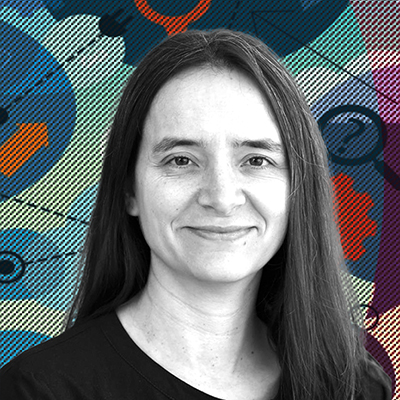
Dr Dot Dumuid, UniSA Allied Health & Human Performance ($1,378,364): Not everyone has the same 24 hours in a day: Addressing time inequality through AI-based personalised time-use interventions
Every day we juggle many competing demands of our time. Incorporating one-size-fits-all time-use interventions (eg increasing physical activity to 30 minutes a day) into our lives can be impossible or unsustainable. This project will develop new methods that search across all daily activities (sleep, sedentary behaviours and physical activities) to obtain a menu of different time-use changes that have the same health benefit, giving people flexibility and choice in how they use their time to build health.
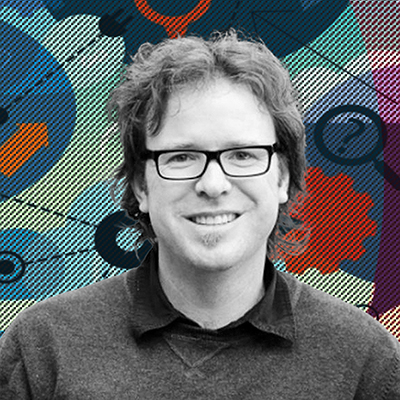
Associate Professor Quenten Schwarz, Centre for Cancer Biology ($1,125,492): Exploring new anti-apoptotic roles of intracrine VEGF in cartilage development and disease
In contrast to its predominant role in blood vessels, the project team has identified a novel molecular pathway through which vascular endothelial growth factor A (VEGF) regulates cartilage survival. Using novel animal models and engineered cells, the team intends to unravel how this molecular pathway controls cartilage development. This analysis stands to provide new insight to the origin and treatment of craniofacial birth defects and to the biological roles of VEGF in bone growth, cancer and osteoarthritis.

Professor Michael Samuel, Centre for Cancer Biology and Basil Hetzel Institute for Translational Health Research ($851,789): Defining the causal relationships between the tumour ECM and cancer outcomes
All tissues are built around a scaffold or matrix of proteins, providing them with rigidity and structure. The matrix is fundamentally changed when cancers arise. These changes are caused by cancer cells, and the tumour matrix provides an environment that allows cancer growth and can help its spread around the body. This project seeks to understand how this tumour matrix fosters cancer growth and spread, with a view to gaining insights to target it as therapy against deadly metastatic cancers.
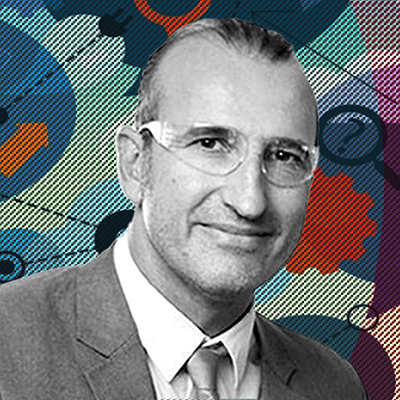
Professor Peter Hoffmann, UniSA Clinical & Health Sciences ($481,016): Diagnosis of Lymph Node Metastasis in Endometrial Cancer
Metastasis is the primary cause of death from solid cancers, especially in endometrial cancer. In most patients it is impossible to know without radical surgery who is suffering from metastasis. This project will develop a diagnostic method utilising latest mass spectrometry technology to determine these patients. The new diagnostic method will save lives and spare patients unnecessary interventions which are associated with significant morbidity and loss of quality of life.
UniSA staff and alumni among distinguished Australia Day honourees
A UniSA expert in vascular biology has been recognised for service to medical research in this year’s Australia Day Honours.
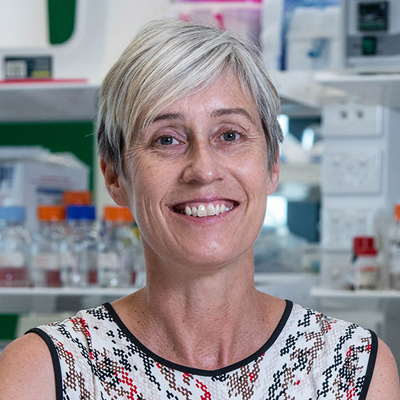
Professor Claudine Bonder, who heads the Vascular Biology and Cell Trafficking Laboratory at the Centre for Cancer Biology at UniSA, was awarded a Medal of the Order of Australia (OAM). Her current program of work focuses on investigating how blood vessels contribute to cancer of the breast, pancreas and skin.
A broad range of members of the UniSA community were recognised for their outstanding service and contributions to various industries in this year’s Australia Day Honours.
Successful businessman, former chair of Adelaide Football Club and UniSA Alumni Award recipient, Rob Chapman, was made a Member of the Order of Australia (AM) for significant service to the financial sector, and to Australian rules football.
UniSA honorary doctor, the late Professor Lyndall Ryan, was made an Officer of the Order of Australia (AO) for distinguished service to tertiary education, particularly Indigenous history and colonial settlement through research and publications.
Numerous alumni were also recognised.
UniSA Vice Chancellor Professor David Lloyd congratulated the exceptional members of the University community recognised in this year’s honours.
“UniSA staff, students and alumni were acknowledged for their outstanding contributions to Australian society and the positive impact they are making,” he says.
The full list of UniSA staff and alumni who were recognised in the 2025 Australia Day Honours is available on the UniSA Alumni website.
UniSA students shine in exclusive national program fostering Australia-China relations
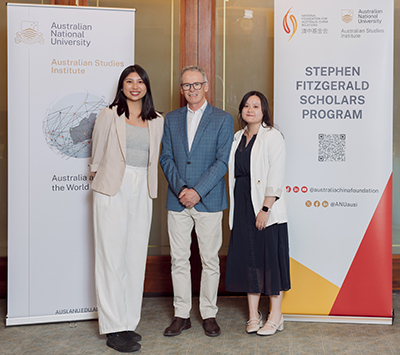 UniSA's 2024 Stephen FitzGerald Scholars Master of Engineering (Water Resources Management) student Constance Ko and Master of Education student Tiffany Lau with Australian National University (ANU) Australian Studies Institute (ASI) director, Professor Mark Kenny (centre), in Australia’s capital, Canberra.
UniSA's 2024 Stephen FitzGerald Scholars Master of Engineering (Water Resources Management) student Constance Ko and Master of Education student Tiffany Lau with Australian National University (ANU) Australian Studies Institute (ASI) director, Professor Mark Kenny (centre), in Australia’s capital, Canberra.Two exceptional UniSA international students recently participated in the prestigious 2024 Stephen FitzGerald Scholars Program, gaining unprecedented access to Australia's most influential institutions during an immersive three-day study tour in the nation's capital.
Master of Education student Tiffany Lau and Master of Engineering (Water Resources Management) student Constance Ko, both from Hong Kong, were among just 33 high-performing international students selected from universities across Australia for this year's program. Named in honour of Dr Stephen FitzGerald, Australia's first ambassador to the People's Republic of China, the initiative aims to deepen engagement between Australia and China while fostering lasting people-to-people relations.
The students were granted exclusive access to iconic landmarks including Parliament House, the High Court of Australia and the National Press Club. Through these visits, they developed unique insights into Australia's political, legal and cultural foundations.
Breaking down stereotypes
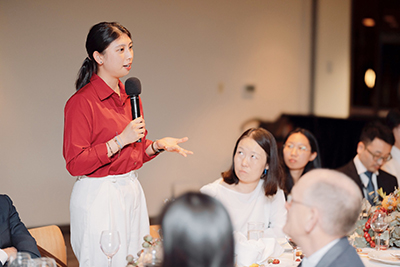 Constance explaining how enriching relationships between Australian and Chinese professionals can be developed at the Gala Dinner held at the National Museum of Australia.
Constance explaining how enriching relationships between Australian and Chinese professionals can be developed at the Gala Dinner held at the National Museum of Australia.For Constance, who brings a unique perspective as an international student studying in Australia, the program aligned perfectly with her aspirations.
“Having grown up in Hong Kong and now experiencing life and education in Australia, I have witnessed firsthand the importance of fostering dialogue to break down stereotypes and build lasting connections,” she says.
A highlight of her experience was the gala dinner, where she had the opportunity to engage in thought-provoking discussions with influential leaders.
“My conversation with Professor Hugh White provided valuable insights into Australia's geopolitical positioning and underscored how cultural exchange initiatives can challenge preconceptions and strengthen ties between Australia and China,” she says.
For Tiffany, whose passion lies in promoting linguistic diversity and education, the program offered valuable perspectives on Australia's democratic processes.
“Observing a session in Parliament House was enlightening. It showcased the democratic process in action and emphasized the importance of active citizenship and representation in governance,” she says.
Both women see their experience as a catalyst for developing stronger connections between Australia and China.
Read the full article on the UniSA website.
ANNOUNCEMENTS
Applications open for new Adelaide University Vice Chancellor
The global search process has commenced to recruit a single Vice Chancellor and President of Australia’s new major university.
Adelaide University is set to deliver an ambitious education and research agenda, combining two preeminent institutions, the University of South Australia and the University of Adelaide. It will open in January 2026 and deliver nation-leading curriculum, exceptional student experience, and future-making research within a framework of deep industry connection.
Adelaide University Transition Council Chancellor Pauline Carr says the role of Vice Chancellor and President (Vice Chancellor) from 2026 offers a once in a generation opportunity to lead a new global university headquartered in one of the world’s most liveable locations.
“We are creating a university for the future that will make a transformative impact in our world,” Carr says.
“Having the right person at the helm will be critical to its success, someone with an extensive track record of visionary leadership and the proven capability to deliver outstanding results in an environment of similar scale.
“Adelaide University’s new leader must also share our values and goals, including our commitment to educational equality and our ambition to rank sustainably in the world’s top 100 universities, as a member of Australia’s prestigious Group of Eight (Go8).”
The views of staff, students and alumni as well as other stakeholders from the University’s community will help to inform the key attributes of a successful appointee, with engagement to commence this month.
The recruitment process is being led by the Adelaide University Transition Council in partnership with its executive search partner Korn Ferry, which was appointed in December last year following a competitive tender process. Applications for the Vice Chancellor role will close on Tuesday 18 March 2025.
The current co-Vice Chancellors of Adelaide University, Professor Peter Høj AC and Professor David Lloyd, confirmed in January that neither would seek to take on the new role of Vice Chancellor. They will continue to lead Adelaide University’s transition into 2026, while also remaining Vice Chancellors of their respective universities until relevant legislation is repealed in the first quarter of next year.
APPOINTMENTS
Forestry Centre of Excellence welcomes first director
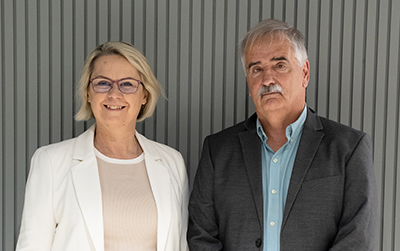 FCoE director Professor Jeff Morrell (right) with SA Forest Industries Minister Clare Scriven MLC.
FCoE director Professor Jeff Morrell (right) with SA Forest Industries Minister Clare Scriven MLC.Professor Jeff Morrell has commenced as the first director of the newly established Forestry Centre of Excellence (FCoE), based at UniSA’s Mount Gambier campus.
Globally renowned for his distinguished career in the timber industry, Prof Morrell previously led the Centre for Timber Durability and Design Life based at the University of the Sunshine Coast. Before that he spent more than three decades leading the durability program at Oregon State University in the United States.
The FCoE is a collaborative project between the SA Government, UniSA and the forest industry.
A new dedicated FCoE building is expected to be completed in January 2026 on the east wing of the UniSA Mount Gambier campus. The precinct also accommodates the new Mount Gambier Technical College and the Mount Gambier TAFE.
Prof Morrell says he’s honoured to have been chosen to lead the new centre, which aims to become an international leader in the forest industry for research, education, training, product and market development.
“It’s an exciting time to be in forestry in Australia with the resurgent interest in our industry in recent years,” he says.
“To have the support from industry and the State and Federal Government highlights the growing importance of our forests.
“My intention is to help create a vibrant Forestry Centre of Excellence that builds upon the many excellent projects already underway and contributes to South Australia’s prosperity,” Prof Morrell says.
Vital research already underway in temporary facilities on the campus includes projects on:
- structural timber market access
- improving safety
- fire detection from cameras and satellites
- suppression, recovery and analysis of digital forestry data using AI
- immersive data analytics.
More details about the Forestry Centre of Excellence can be found on the Department of Primary Industries and Regions website.
UniSA welcomes new leader for its Mount Gambier campus
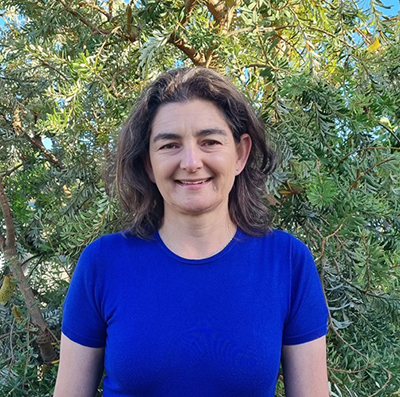 Incoming regional manager for UniSA's Mount Gambier campus Peta Crewe.
Incoming regional manager for UniSA's Mount Gambier campus Peta Crewe.The regional development lead for the SA Department of Primary Industries and Regions (PIRSA) Peta Crewe is joining UniSA to head up its Mount Gambier campus as new regional manager.
From forestry to vines, livestock and community, Crewe’s connection to the Limestone Coast region spans a quarter of a century including roles in government, at ForestrySA, and on strategic working groups and committees.
Her current role is general manager – regions, for PIRSA, where she oversees regional development across 11 regional offices.
Crewe will commence in her UniSA role on 3 March.
UniSA Vice Chancellor Professor David Lloyd says Crewe has an outstanding track record delivering successful regional programs and addressing the key issues in regional communities, including workforce shortages, lack of affordable housing, industry development and community capacity building.
“Her experience and connections in the Limestone Coast region, a region of enormous social, cultural and economic significance to SA, will be a great asset to our University and the local community,” Prof Lloyd says.
UniSA Mount Gambier’s current regional manager Ian McKay will retire on 14 March after eight years in the role.
“Ian has been a wonderful advocate and ambassador for UniSA and has made a significant impact in the Mount Gambier community,” Prof Lloyd says.
“UniSA’s regional engagement and connections to the Mount Gambier community have greatly expanded under Ian’s leadership. On behalf of the University, I thank him for his contributions and wish him all the best in his future endeavours.”
Crewe has an agriculture degree from the University of Adelaide and a Master in Forest Science. Her previous roles include PIRSA's regional coordinator for the Limestone Coast. Among her many community roles and professional memberships, she is team manager for the Blue Lake Soccer Club’s Senior Women’s team.
Other Stories
- $2.5m gift powers new Aboriginal Knowledges Centre
- Interest rate cuts, lower inflation, trade shifts – will Australia’s economy find its stride in 2025?
- Myth busted: How long healthy habits actually take to set in
- Watch shows together, talk about them and have dance parties: how to rebalance screen use after the holidays
- From the Vice Chancellor: The collective power of individuals
- Achievements and Announcements
- Army Reservists in the firing line from unsupportive managers
- Record number of UniSA students to explore the Indo-Pacific on New Colombo Plan Scholarships
- Peer Support Group a shining light for refugee students
- In Pictures: MOD.’s new exhibition rethinks time, memory and mortality




